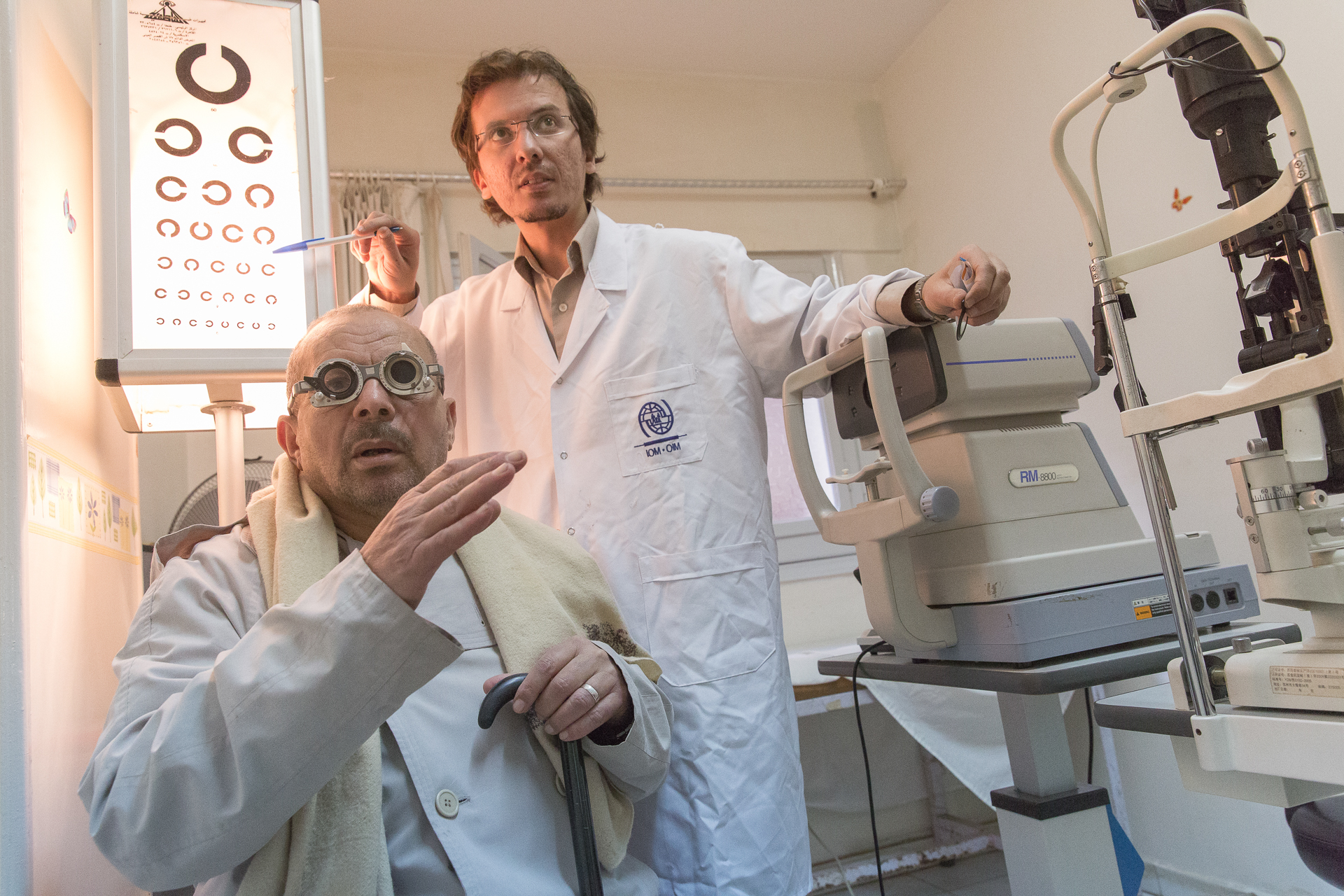Geneva, 15 Nov 2021 – I would like to make a relatively simple argument regarding the craft of policymaking: Policymakers must keep their reading glasses on.
I am conscious that this is a blog on migration and not one on optometric care, so allow me to explain.
My mother recently had an eye surgery where doctors placed permanent contact lenses in her cornea. This new technology has the dual function of correcting both her presbyopia as well as her myopia; she will now be able to see objects that are far and objects that are close to her. This made me realize that the challenges my mother was facing with her vision are just like those of policymakers. Policymakers must devise long-term plans and develop programmes for large segments of the population, while taking into consideration the individual human lives they can impact. Policymakers must keep a perfect balance of farsighted and nearsighted vision.
The issue of migration is a perfect example to illustrate this point. When discussing migration policymaking, we often think of the responsibilities that migrants have towards their host communities versus the obligations host governments have towards them.
Regarding the responsibilities of migrants, a farsighted vision would highlight the challenges related to the integration of newcomers in their host community. After large flows of migration occur in a given country, it is common to hear criticism of the allegedly slow pace at which newcomers learn the official language of the host country, or their relatively higher rate of unemployment. However, a nearsighted vision of the issue would help highlight that newcomers are individuals with their own struggles, aptitudes, and aspirations. This vision would help recall the triumphant feeling anyone has of ordering food in a restaurant in a new language for the first time or the enormous pride of seeing one’s child graduate from high school with grades that would make any native parent jealous. These small individual victories deserve their place in public discussions on migration policy as they are some of the most important indicators of success.

Bhutanese children attending school inside a camp in Nepal. Photo: IOM / Kari Collins
Now turning the tables and looking at the government’s obligations towards migrants. For many years, migration policy has been seen through the prism of migrants’ vulnerability. We often think of the importance of including provisions for migrants in government social programmes, or of the specific assistance required by migrants that went through a perilous journey to reach their destination. While of utmost importance, the vulnerability angle is only one side of the coin. When we start focusing on individual stories over time, we realize that our compassion can often be complemented with thankfulness. Thankful is how my mother felt when her Vietnamese optical surgeon successfully corrected her vision in Canada. Growing up in Canada, this is also how I feel about the Romanian university professor who, having recently arrived in the country, opened my eyes to issues of minority rights, to which I now devote my career. The same can be said about the Portuguese family-run business that offered me my first professional opportunity in the suburbs of Montreal. We often find that the people for whom we have compassion will later be the same people who will deserve our utmost gratefulness. With these anecdotal examples, the point I am trying to illustrate is the importance of having comprehensive responses to issues that gain in richness when we look at them through farsighted and nearsighted vision.
One of the International Organization for Migration´s (IOM) tools that promotes this approach is the Migration Governance Indicators (MGI) programme. On the one hand, the MGI allows for a farsighted approach by helping policymakers to reflect on how exhaustive their migration policy measures are as they need to respond to increasingly complex realities. On the other, with its 94 indicators, the MGI helps policymakers to zoom in on specific migration issues that are of particular importance in their context, and thereby promoting a more nearsighted approach. Over the years, the MGI has allowed countries like Cambodia to include new provisions related to migrants in their health policy. This is crucial, especially in the context of the current pandemic, which helps us understand the impact an individual’s health can have on the entire society. It also helped Moldova to adopt new provisions to encourage diaspora investments in the country. This will help increase the socio-economic development of the country, while also nurturing the feeling of belonging of individual diaspora members who wish to give back to their home communities. In Sao Paulo (Brazil), the MGI process supported the development of the Municipal Plan for Immigrant Policies (2021–2024), the first of its kind in Brazil. The plan includes concrete measures, notably on housing – one of the most basic needs central to one’s well-being that simultaneously shapes the communities in which we interact on a daily basis. I am personally very proud to work on a programme that encourages policy changes that have a concrete impact on societies as well as on individual human lives.

An IOM doctor screens a Syrian man at a mobile health clinic in Greater Cairo. Photo: IOM/Pedro Costa Gomes
In conclusion, it is important for policymakers to be able to have long-term visions, set high-level goals, and work towards more inclusive and prosperous societies. However, this will never be possible without keeping in mind the complex individual lives, their struggles and their dreams, often standing right in front of our eyes. For this reason, I am asking you, policymakers, to keep your reading glasses on.